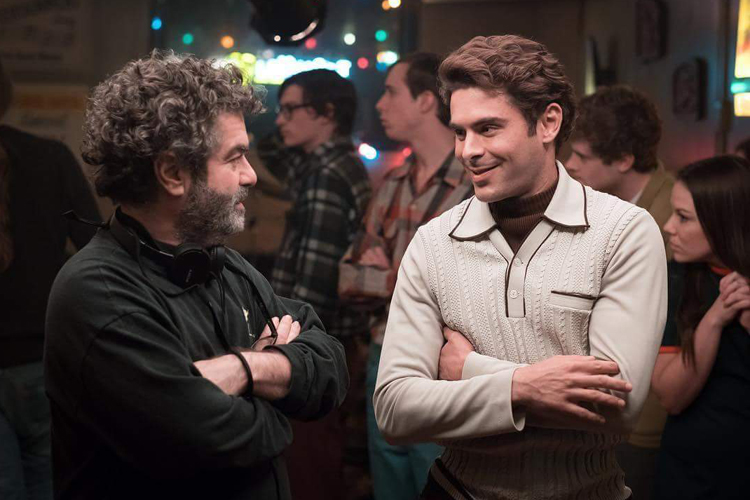I recently joined a round table of critics to interview Joe Berlinger, the director of the Ted Bundy biopic Extremely Wicked, Shockingly Evil and Vile. Joe’s answers ended up being far lengthier than we had anticipated, so we only had time to ask him one question each. The following Q&A, then, has not been edited for length. Extremely Wicked, Shockingly Evil and Vile will be available to stream on Netflix on May 3rd.
Ryan Bordow: Hello!
Joe Berlinger: Hey!
RB: We’ve seen throughout human history—and especially in the media age—that for some people, the mere depiction of violence or violent people is not enough to inherently condemn [violence]. When news outlets sensationalize the identities of mass shooters, we often see people attempting to emulate those mass shooters, because they’re disturbed individuals that see people like them pulling off horrible things and becoming famous. I was struck by the end of the film, which had a few clips of the actual Ted Bundy: Zac Efron’s performance as Ted Bundy seemed even more attractive and charismatic than Ted Bundy appeared to be in real life. Do you think there’s any danger that this film’s portrayal of Ted Bundy—and the fact that there’s a well-known celebrity playing his role—could inspire somebody to violence, because they’re looking for fame and looking to be remembered in connection with somebody famous?
JB: Uh, that’s an excellent question, and worthy of debate. I disagree that the real Bundy has more charm than Zac; the point is—
RB: I was saying the other way around. Zac seemed more charming.
JB: Yes, well, I reversed it, but I still disagree. [Laughs] I disagree with the idea that Zac is more charming than Bundy, because what we’re talking about is the hold that each—you know, the hold that Bundy had over people was very clear. I mean, women were coming down—you know, a few select clips, I don’t think you can necessarily come to that conclusion; it’s the whole arc of his life. Women were going down to the floor to trial convinced he was innocent, or if he’s not innocent, he’s still sexy and there’s something about him and I want to be in the same room. I mean, he had that power over people. He seduced the judge to allow him to have free reign over the courtroom, he seduced people in Colorado to allow him to walk free, and he escaped. So I don’t agree that Bundy is more charming—uh, that Zac is more charming than Bundy, per se, you know.
But you raise a good point about copycats, but it’s hard to know where people derive—and therefore you can’t censor yourself. Where do people derive their inspiration from? I mean, John Hinckley, you know, killed—or attempted to kill—the president, because he was trying to impress Jodie Foster. Should Jodie Foster remove herself from public life? Should any actress remove themselves from public life? The Aurora killings were inspired because of, you know, Batman, so is Batman—you can’t—again, it’s a worthy, all of these debates: glamorization, inspiration, all of these things are very healthy and good to debate. But, you know, the moment you start censoring yourself—you know, if this movie was like a gore fest, an irresponsible gore fest, maybe. But it’s an intelligent movie that has some real thought behind it, and if somebody is inspired to be Ted Bundy off of this movie, then I would argue a different person would be inspired to do something evil off of any kind of movie. So where do you draw the line?
I don’t actually have an answer, but I know I’m not worried that people will be inspired to do something off of this movie in particular, because I think it was very responsibly made.
RB: Thank you.




